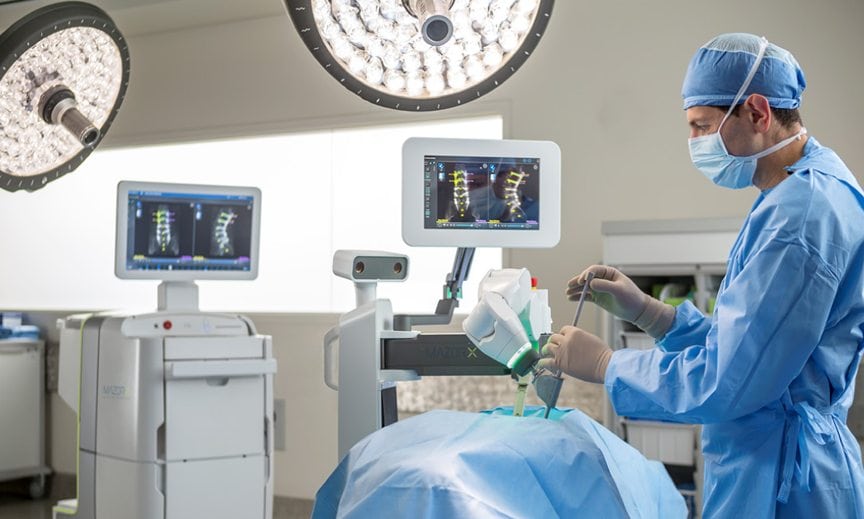Hartford HealthCare (HHC) will soon become the first healthcare system in the Northeast to pioneer the latest robotictechnology for spine surgery. The new robotic system, calledthe Mazor X, enables the surgeon to perform a virtual dressrehearsal of the surgery, allowing potential complications tobe identified before the actual procedure begins.
Surgeons will use the technology for spinal fusion procedures to treat conditions like spinal stenosis and spondylolisthesis. Patients with these conditions often suffer with debilitating symptoms like low back pain, leg pain and sciatica.
To relieve the pain, surgeons place bone tissue, screws and plates in the problem area of the spine, and the body’s natural bone growth gradually fuses the vertebrae. The procedure requires precise placement of surgical screws and implants to avoid complications including irritating adjacent joints. Mazor X helps avoid that complication by allowing surgeons to develop a detailed plan well before the surgery takes place.
The patient has a preoperative CT scan, and the images are downloaded to the Mazor X software. On the computer, the surgeon positions screw images in the spine image. The result is a 3-dimensional image you can rotate on the screen.
“Seeing the patient’s complete spine in three dimensions prior to surgery increases the efficiency of the operation, because the surgeon won’t encounter anything unexpected once the procedure is underway. It also helps with more accurate placement of the hardware,” said Dave Santoro, director of operations for Hartford HealthCare’s Bone & Joint Institute.
Major X robotic surgery will be available at Hartford Hospital, the Bone & Joint Institute and MidState Medical Center. Over time, it will be introduced to add precision to an increasing number of procedures, including correcting spinal deformities such as scoliosis.
“Hartford HealthCare has a long tradition of using robotic technology to improve patient care. We’re committed to providing the most advanced technologies along with the highest quality care for our patients and are excited to bring this revolutionary technology to patients across Connecticut,” said Wendy Elberth, vice president, Hartford HealthCare Neuroscience Institute.
The first cases are anticipated in March.

